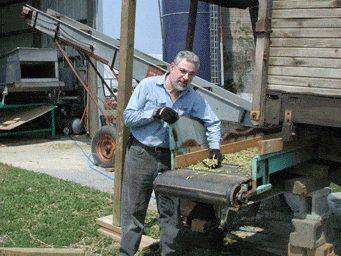By Nick Maravell
John Block’s Op Ed “A Reality Check for Organic Food Dreamers” incorrectly states, “organic farming cannot produce the amount of food that is demanded in today’s world,” and that it “stands in the way of progress.” While most studies show that certain organic crops, such as corn, would have slightly lower yields and lower total production than conventional,[1] the studies also show organic farming can feed the world, and in developing countries organic methods would increase food production and self-sufficiency.[2]

A recently released nine-year study in Iowa shows traditional mid-West farms can benefit from adopting methods commonly used on organic farms. By extending the conventional two year corn-soybean rotation to a more diversified three year and four year rotation, corn and soybean yields rose, chemical nitrogen fertilizer and herbicides fell 80%, herbicide-related fresh water toxicity was 200 times lower, and genetically modified (GMO) seed showed no advantage over conventional seed in the extended rotations—while profits per acre remained similar in all three systems. [3]
These findings strongly suggest that organic farming can reduce chemicals, increase yields per acre and simultaneously maintain profitability. In addition, organic farming could build healthy diversity into our diets and increase resilience and security in our nation’s food supply.
What Mr. Block states are the strengths of American agriculture—constantly improving equipment, technology and genetics—applies equally to organic farming where such advances also reduce dependence on petroleum-based chemical inputs. For this reason, USDA invests over $25 million annually in organic research benefiting both conventional and organic farming.
Much has changed about our knowledge of organic farming since the early 1980’s when Mr. Block was Secretary of Agriculture. Organics is now a $30 billion a year industry representing the fastest growing sector of our agriculture.
I urge Mr. Block to use his prestige and leadership to sponsor a series of public forums to harness the power of diverse perspectives to improve our national debate on food and farming policy. Far from standing in the way of progress, organic agriculture is playing its part to help lead the way forward.
Nick Maravell
Potomac, MD
Mr. Maravell currently serves as a farmer representative on USDA’s National Organic Standards Board and has farmed organically since 1979, raising grain, livestock and vegetables.

